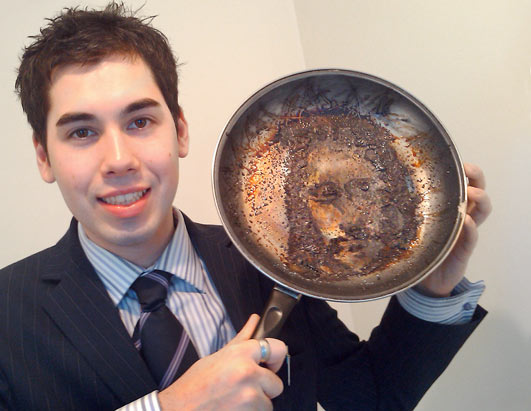How many of the pastors and ministers in our churches no longer believe in God? That’s the question asked in “Preachers Who Are Not Believers,” a fascinating report by Daniel C. Dennett and Linda LaScola of the Center for Cognitive Studies at Tufts University. Dennett, of course, is a cognitive scientist and prominent atheist. His book, Breaking the Spell, put him at the forefront of “new atheists” movement, along with Sam Harris, Christopher Hitchens, and Richard Dawkins.
The report offers five case studies of Christian ministers who no longer identify themselves as believers — but their churches don’t know it. They are secret atheists or agnostics who are still serving their congregations, teaching them about God and the Bible, and otherwise functioning as clergy.
Money quotes from three of them:
Darryl is a Presbyterian who claims to follow Jesus, but “…it is arguable whether I am also a ‘Christian.’…I reject the virgin birth. I reject substitutionary atonement. I reject the divinity of Jesus. I reject heaven and hell in the traditional sense, and I am not alone.” But he lives as a Christian anyway. “Whether there was a God or not, I would choose to live as if there was a God. Because I didn’t like the alternative.”
Darryl admits that he’s still in the ministry because it pays the bills. It’s how he makes a living. To admit his lack of beliefs would mean walking away from his only source of income.
Adam is a Church of Christ worship leader who lost his faith after reading books in which he thought atheists made better arguments than Christians. He talks about how he tried, as a reader fascinated with learning, to “be open and listen, and use my mind and reason.” He worries about what others would think if they knew how he’d changed. “Even if Christianity isn’t true, is it best to leave the people alone in their ignorance? …They’re happy, and they have hope in a life to come, and so it helps them through their suffering, which is a strong selling point of Christianity.”
How does he handle his role as a Sunday morning worship leader? “I see it as play acting. I see myself as taking on the role of a believer in a worship service, and performing. I know how to pray publicly…I love singing. [But] I don’t believe what I’m saying anymore in some of these songs.”
Jack, a Southern Baptist worship leader, fell into atheism after deciding to read through the Bible carefully as a way to get closer to his faith. It had the opposite effect. “I think most Christians have to be in a state of denial to read the Bible and believe it. Because there are so many contradicting stories.” He didn’t plan on becoming an atheist. “I didn’t even want to become an atheist. It’s just I had no choice if I’m being honest with myself.”
Jack admits that he’s still in the ministry because it’s his job. It puts food on the table. But he’s planning to leave as soon as he finds another way to support his family.
————-
In posting this report, the Washington Post asked some of its religion panelists — from Albert Mohler to John Shelby Spong — to respond to the report and the questions it brings up. Their answers were interesting, and all over the map (which isn’t surprising…it’s a diverse group).
I want to ask you the same questions.
Pastors and ministers are rightly seen as authority figures when it comes to matters of faith, so…
What should pastors do if they no longer hold the defining beliefs of their denomination?
Is it better for clergy to uphold the faith of their congregations or to be honest about their own doubts and theological changes?
What would you want your pastor to do with his or her personal doubts or loss of faith?

